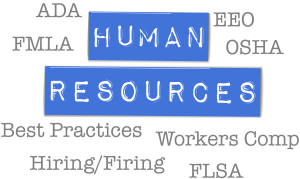 Not every required activity falls into the “preliminary” or “postliminary” activities exception.
Not every required activity falls into the “preliminary” or “postliminary” activities exception.
Source: Inside Council
Authored: Joseph E. Gumina
Under the Fair Labor Standards Act (FLSA), activities engaged-in by employees that occur before and after scheduled work hours not involving the performance of the principal activities of an employee’s job are normally not compensable as working time. Such activities are referred to under the FLSA as preliminary and postliminary activities. Although such activities may include, under certain circumstances, donning and doffing activities, it can also more broadly encompass activities that are required of employees before and after their shifts, such as waiting in line to get paychecks, showering as a matter of convenience after a work shift, riding on a company bus from a parking lot to the work site or waiting in line to pass through a security screening.
Whether such time should be compensated as hours worked recently received significant press because of the United States Supreme Court’s decision in Integrity Staffing Solutions, Inc. v. Busk et al., ruling that time spent waiting to undergo and undergoing security screenings after work each day is not compensable time under the FLSA.
The Integrity Staffing Solutions case involved a collective claim by employees of a temporary staffing agency who worked at warehouses in Nevada retrieving products from shelves and packaging those products for delivery. These employees were required to pass through a security check after the end of their shift to ensure that they had not pilfered any product from the warehouse. At times, employees were required to wait as long as 25 minutes in line before they were permitted to leave the premises. The employees’ claim was based upon the argument that the activity of waiting in line fell outside the exception for a “postliminary” activity because it was integral and indispensable to the principal activities of their warehouse job and was performed for the benefit of the employer. The Supreme Court disagreed.
The Supreme Court held that the activity of waiting in a security line after work was not a “principal activity” of the employees, because the employees were hired to retrieve products from warehouse shelves and package them—not to go through security screenings. As a result, the activity was considered “postliminary” to the employee’s job and not compensable under the Portal-to-Portal Act. The Supreme Court opined that to define “preliminary” or “postliminary” activities to include any activities that are required by the employer, as argued by the employees and accepted by the 9th Circuit, would sweep into “principal” activities the very activities that Congress intended to exclude as compensable working time under the Portal-to-Portal Act. The Supreme Court emphasized that the focus as to whether an activity is a “principal activity” of an employee’s job remains whether the activity is “integral and indispensable” to the employee’s productive work. The fact that the time spent waiting in security lines could have been made shorter by the employer did not change the analysis or the Supreme Court’s conclusion.
Employers, however, should not broadly interpret the Supreme Court’s decision to hold that every activity required by an employer either before or after a work shift falls into the “preliminary” or “postliminary” activities exception. The Portal-to-Portal Act continues to provide that the exception will not apply if the activity is considered hours worked according to the express provisions of a written or unwritten contract between the employer and the employees’ collective bargaining representative, or if the time is treated as hours worked according to custom or practice at the employees’ worksite. For example, if the contract, custom or practice is that employees are paid for 15 minutes of showering time before and after their work shift, such time will then be considered as hours worked even though, by definition, the showering activity could be considered a “preliminary” or “postliminary” activity.
U.S. Department of Labor’s regulation imposes a duty upon employers to make sure that unpaid work is not being performed. To that end, employers, especially production and manufacturing employers, should periodically review those pre-shift and post-shift activities engaged in by their employees to determine whether such time should be compensated as hours worked or whether such activities should remain excluded from compensation as a “preliminary” or “postliminary” activity. The focus of an employer’s analysis in determining the compensability of pre-shift and post-shift activities should be concentrated on whether the activity is “integral and indispensable” to the employee’s productive work. That is, when the activity is not directly related to the employee’s job duties, the time spent engaged in the activity will typically not be compensable absent a contract, custom or practice that provides otherwise. Employers who are aware of their employees’ pre-shift and post-shift habits and routines and who are vigilant in making sure that employees are properly compensated for all hours worked are more likely to avoid costly wage and hour litigation.
Learn best practices for eliminating off the clock work.
EPAY’s time and attendance system helps employers avoid lawsuits by providing digital audit trails and other built in compliance features. Blueforce™ lets you mix and match time tracking devices, including biometric time clocks, phone/IVR, mobile/GPS or the web and easily integrates with most payroll systems for down-to-the-minute time tracking in real time.
 Not every required activity falls into the “preliminary” or “postliminary” activities exception.
Not every required activity falls into the “preliminary” or “postliminary” activities exception.